Men in the army
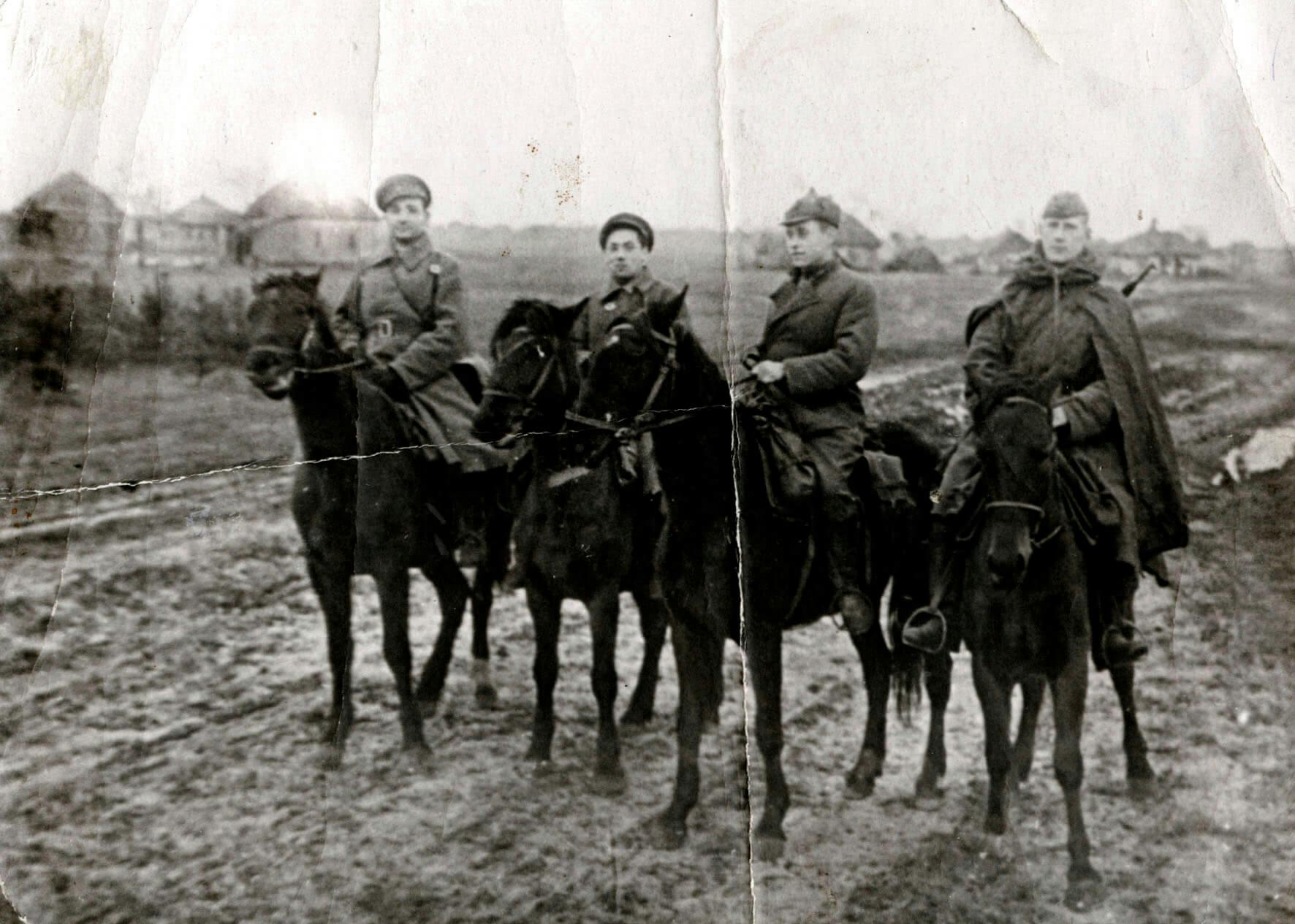
Pictures and stories of Jewish front line soldiers, from privates to colonels
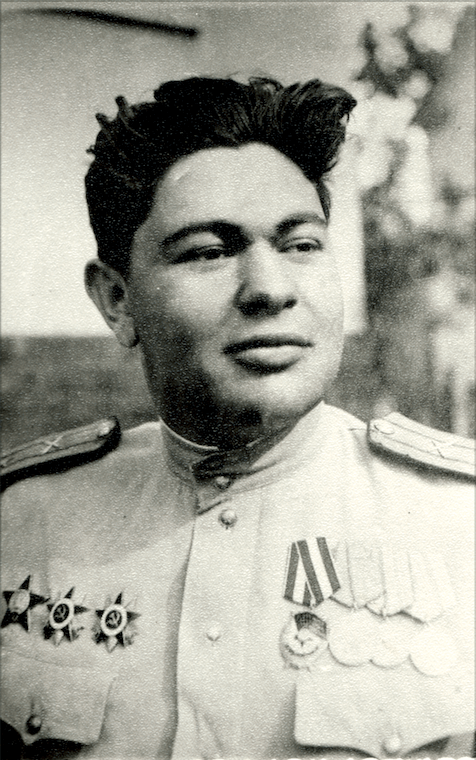
Semen Nezhynski
Photo taken in: left, Leipzig, Germany, 1945; right, Kyiv, on the 40th anniversary of the victory, 1985 Interviewer: Ella Levitskaya
I served in a mobile combat unit on many fronts, including the 1st Ukrainian Front. In 1944 we liberated Majdanek concentration camp. I saw gas chambers, incinerators, and piles of shoes and hair. It horri- fied me and aroused hatred of the fascists. Near Berlin we captured SS troops. An officer I interrogated wanted to go home to his family. I told him, “You should have thought of that before. Now you’ll have to cope with some cold.” I meant Siberia.
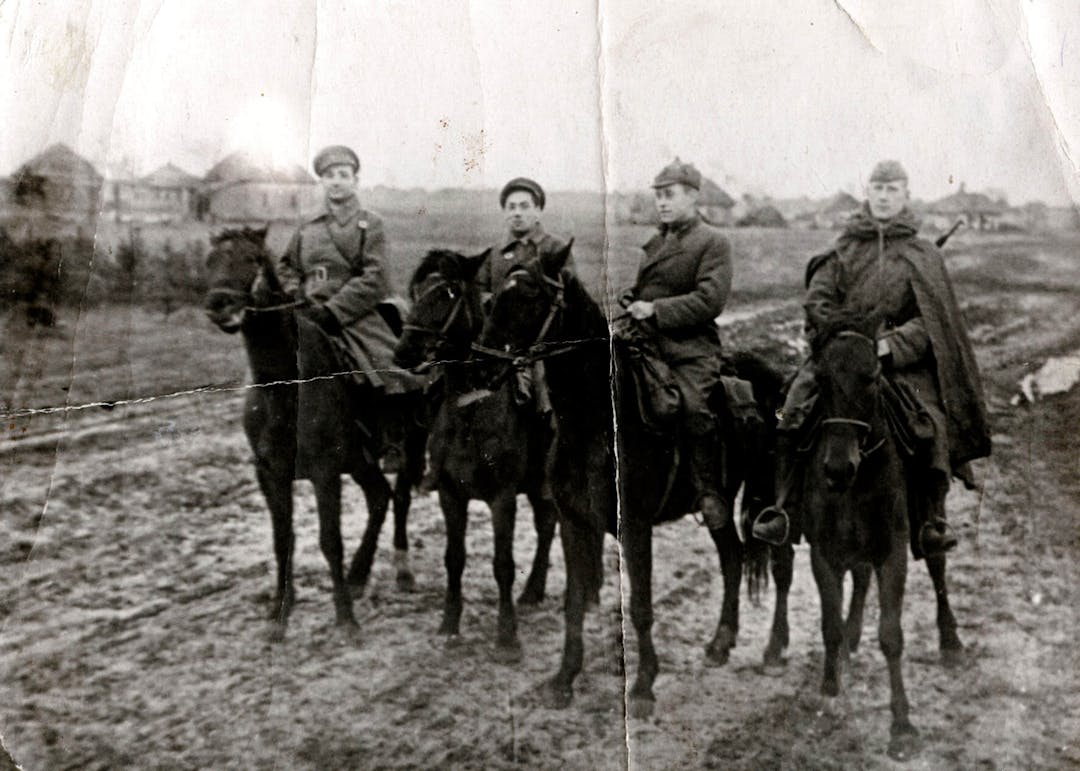
Ida Limonova
Photo taken in: Unknown, 1941 Interviewer: Inna Zlotnik
My husband Natan Shafir, second on the left, with fellow soldiers in the Red Army. On 10 May 1942 he sent a letter from the front to our son Yuri for his sixth birthday. He wrote, “My dearest, you have so many nice things ahead of you. I’m ready to give everything for you, even my life. Happy birthday and many kisses.” He was killed in battle one month later.
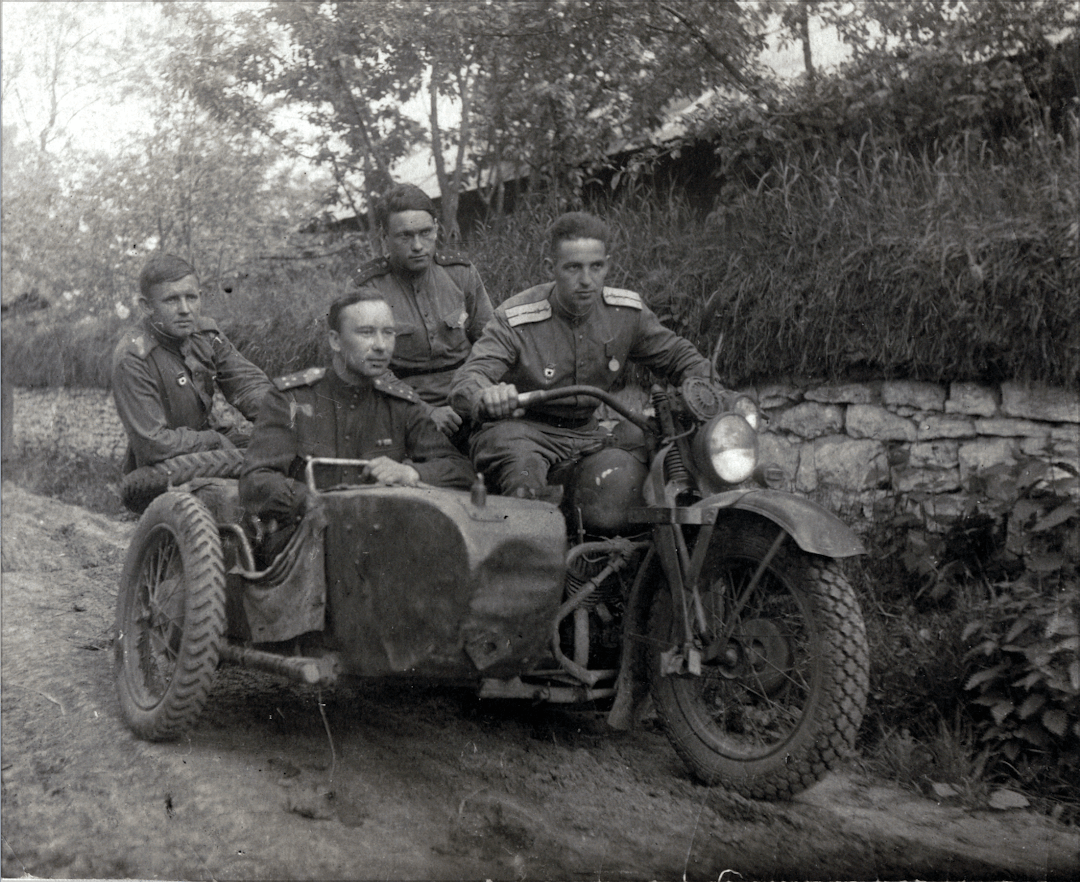
Semen Tilipman
Photo taken in: Chernyatyn, 1944 Interviewer: Natalia Fomina
Me, first from right, after our troops liberated Chernivtsi in May-June 1944. In Chernivtsi we took the spoils of war including food, weapons, fuel, and alcohol. My friend, Captain Zhuk, behind me in this picture, took some fuel and failed to report it to the fuel department, so he was sent to a penal battalion. I don’t know whether he survived.
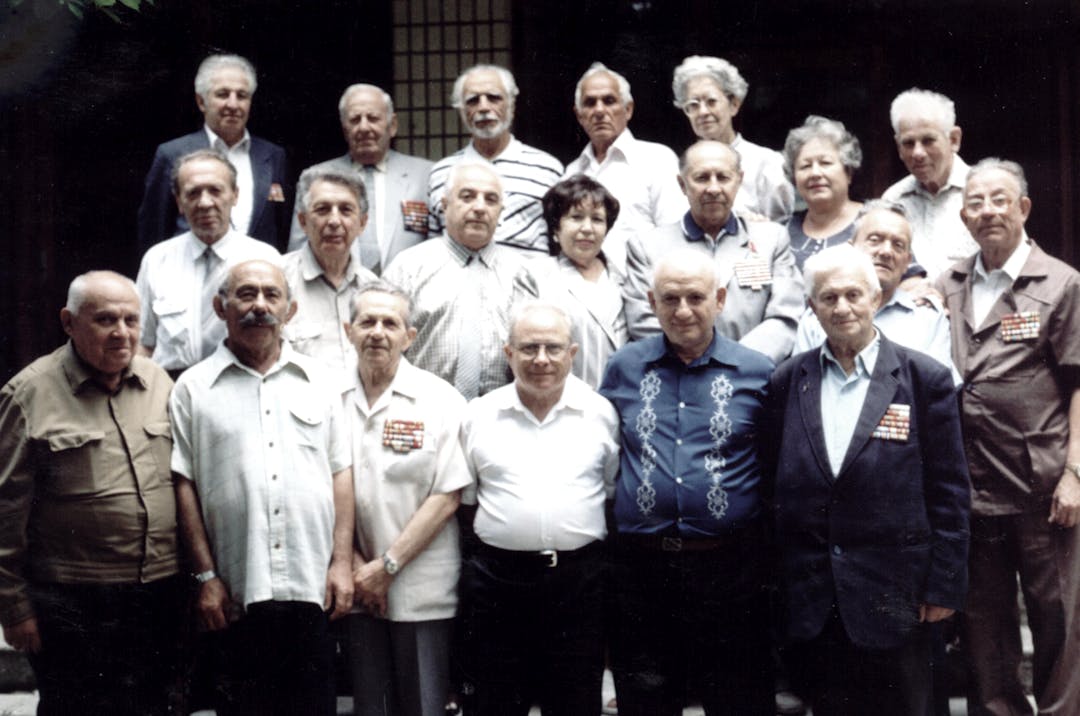
Arkadiy Redko
Photo taken in: Kyiv, 1999 Interviewer: Ella Levitskaya
Me with fellow members of the Kyiv Association of Jewish War Veterans at the Jewish Council of Ukraine. I am in the first row, second from the right. Since my retirement in 1992, I have been very active in the Kyiv Association of Jewish War Veterans, the council of the Kyiv Jewish Community, and the Jewish Council of Ukraine.
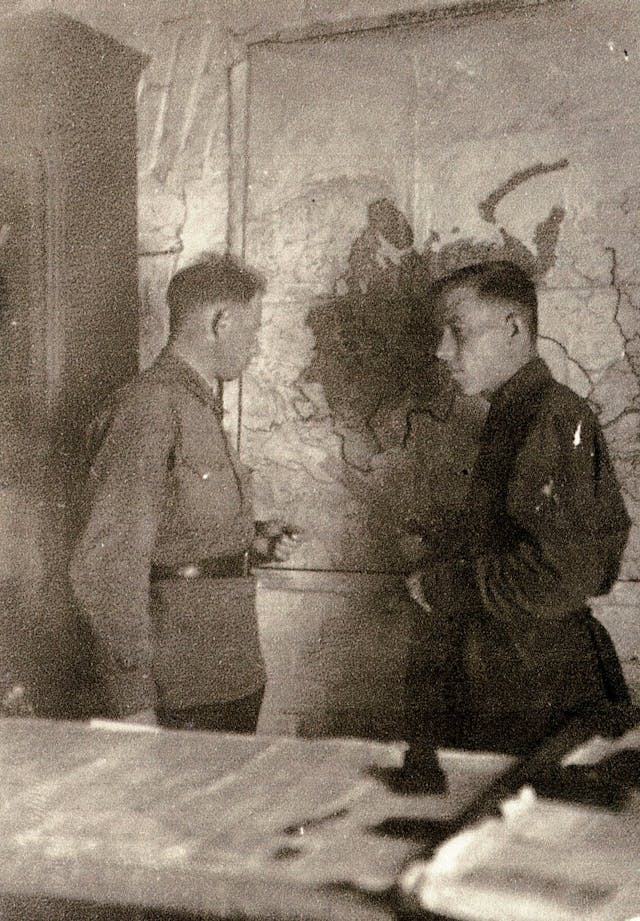
Grigoriy Sirotta
Photo taken in: Kaunas, Lithuania Interviewer: Ella Orlikova
Me, left, at the headquarters of our regiment in Kaunas in 1941. In 1940 we ‘provided assistance’ to the Lithuanian people by liberating them from the oppression of world capitalism. Nobody there was happy to see us. When the war broke out in 1941, I was a communications operator in the rank of sergeant.
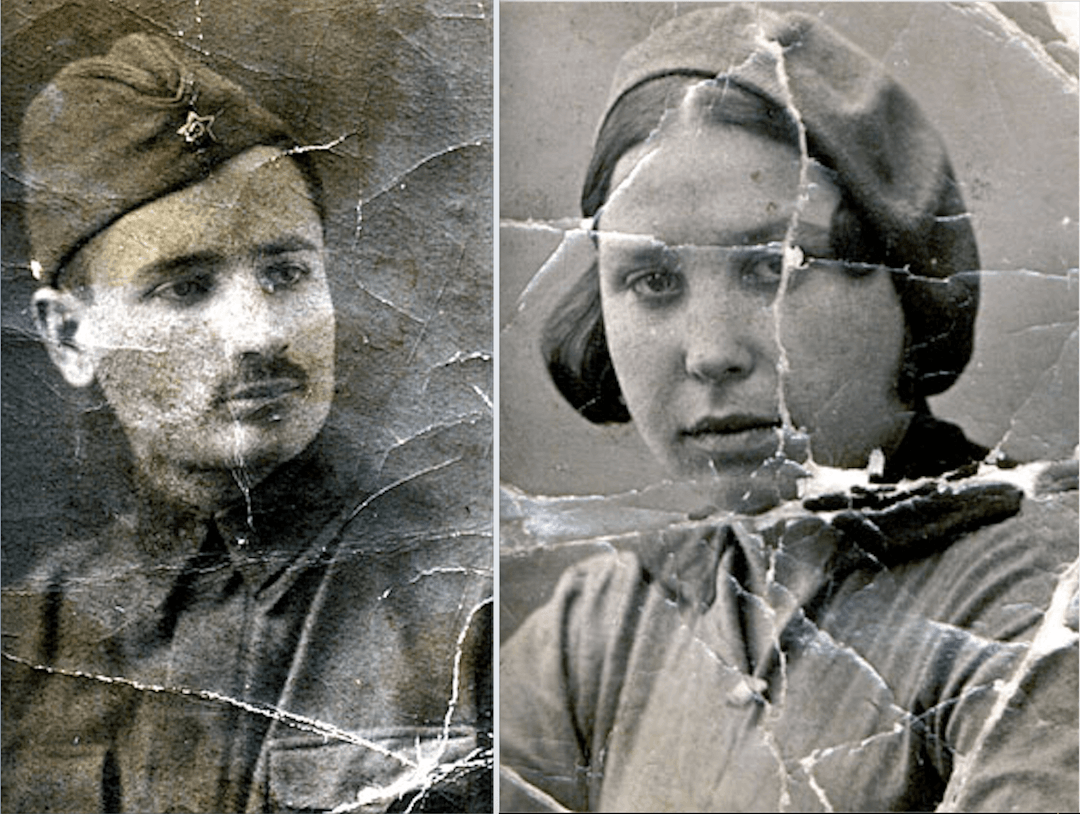
Dora Postrelko
Photo taken in: left, unknown; right, Kyiv, 1935 Interviewer: Zhanna Litinskaya
My sister Hana Gehtmann, right, and her fiancé Sasha Goldberg, left. They planned to get married after college, but life had its own rules. When the war broke out Sasha went into the military. Hana had tuberculosis, and she died in April 1942. I buried my darling sister near the forest. I answered letters from Sasha pretending I was her. I couldn’t force myself to tell him the truth. When I finally told him that my sister had died, he wrote back asking me to send him her photographs. I did and saw him only once more, by chance in 1960.
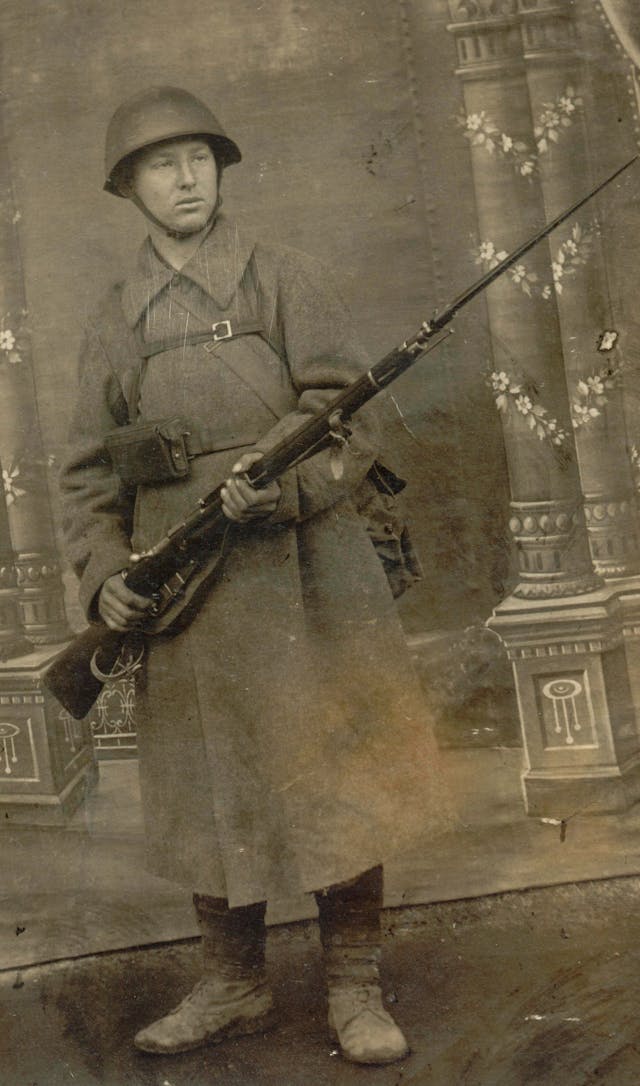
Arnold Fabrikant
Photo taken in: top, Piatigorsk, Russia; bottom, Odessa Interviewer: Nathalia Rezanova
I was called to the army in July 1941 and served in an artillery unit. My father was an army officer. When his unit was encircled by Germans, he and his fellow officers shot themselves rather than be captured by the fascists. I fought in Rostov and Donetsk, marched through Belarus and Poland, and finally Germany itself, where we fought in the streets of Potsdam and Berlin. Once in my peaceful life after the war, I received many awards for my participation in the war effort.